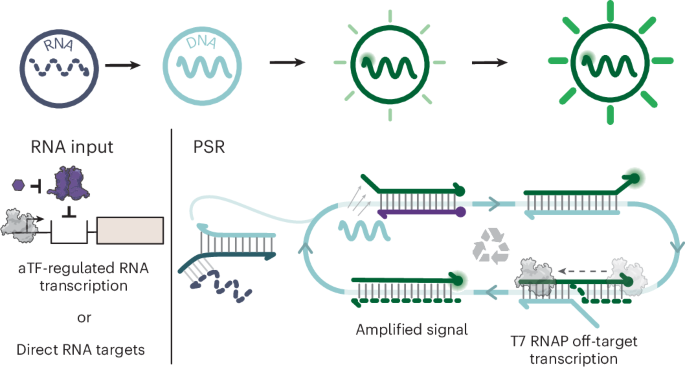2025-01-13 ノースウェスタン大学
<関連情報>
- https://news.northwestern.edu/stories/2025/01/an-amplifier-for-missed-signals-produced-by-our-bodies/
- https://www.nature.com/articles/s41589-024-01816-w
ポリメラーゼ鎖のリサイクルを利用した無細胞バイオセンサー信号増幅回路 A cell-free biosensor signal amplification circuit with polymerase strand recycling
Yueyi Li,Tyler Lucci,Matias Villarruel Dujovne,Jaeyoung Kirsten Jung,Daiana A. Capdevila & Julius B. Lucks
Nature Chemical Biology Published:13 January 2025
DOI:https://doi.org/10.1038/s41589-024-01816-w

Abstract
Cell-free systems are powerful synthetic biology technologies that can recapitulate gene expression and sensing without the complications of living cells. Cell-free systems can perform more advanced functions when genetic circuits are incorporated. Here we expand cell-free biosensing by engineering a highly specific isothermal amplification circuit called polymerase strand recycling (PSR), which leverages T7 RNA polymerase off-target transcription to recycle nucleic acid inputs within DNA strand displacement circuits. We first construct simple PSR circuits to detect different RNA targets with high specificity. We then interface PSR circuits to amplify signals from allosteric transcription factor-based biosensors for small molecule detection. A double equilibrium model of transcription factor–DNA/ligand binding predicts that PSR can improve biosensor sensitivity, which we confirm experimentally by improving the limits of detection by 10-fold to submicromolar levels for two biosensors. We believe this work expands the capabilities of cell-free circuits and demonstrates PSR’s potential for diverse applications in biotechnology.
